Tokyo, Japan —(Map)
Should women be forced to wear high heels for their jobs? Yumi Ishikawa, a 32-year-old actress from Japan, says no. And she’s collected the signatures of almost 30,000 people who agree with her.
Ms. Ishikawa has a part time job which requires her to stand in high heels for many hours. High heels can be painful. They are hard to walk in and nearly impossible to run in.
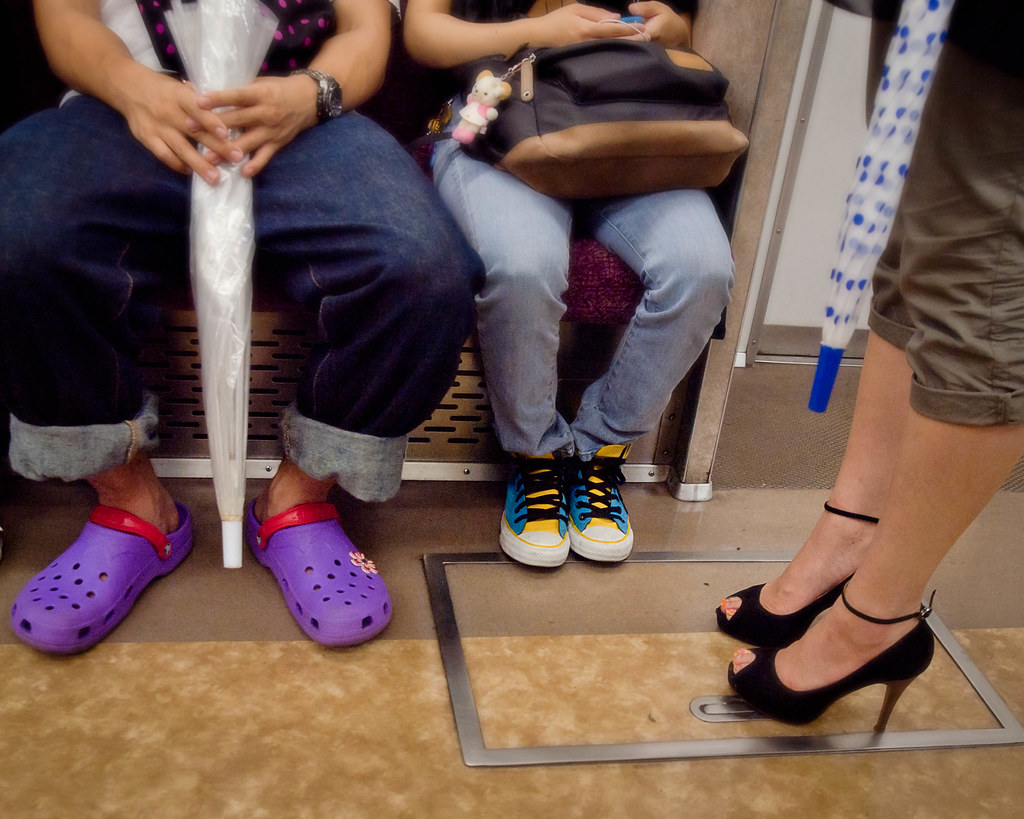
(Source: Peter Lee, via Flickr.com.)
One day, Ms. Ishikawa noticed the shoes of a man who worked with her. She realized her job would be far easier if she was allowed to wear comfortable shoes like his. After work, she posted that idea on the social media site Twitter.
Her post got a huge response – 67,000 people “liked” the post. That led Ms. Ishikawa to create the hashtag #KuToo. Hashtags are a short word or phrase that allows people to mark a post on social media.
Ms. Ishikawa made this post in January. It begins, “Someday I want to get rid of the custom that women have to wear heels and pumps at work.” Her post got a huge response – 67,000 people “liked” the post.
私はいつか女性が仕事でヒールやパンプスを履かなきゃいけないという風習をなくしたいと思ってるの。
専門の時ホテルに泊まり込みで1ヶ月バイトしたのだけどパンプスで足がもうダメで、専門もやめた。なんで足怪我しながら仕事しなきゃいけないんだろう、男の人はぺたんこぐつなのに。— 石川優実@#KuToo署名中?? (@ishikawa_yumi) January 24, 2019
#KuToo was a very clever hashtag. #KuToo sounds a lot like two different Japanese words – one word means shoes and the other means pain. #KuToo is also similar to #MeToo, a well-known hashtag used by women who have been treated badly by men.
Using high heels for a long period of time can lead to injuries far more serious than just blisters or foot pain. High heels can cause ankle problems and change the shape of leg muscles, putting extra strain on them. Wearing high heels can also cause back pain.
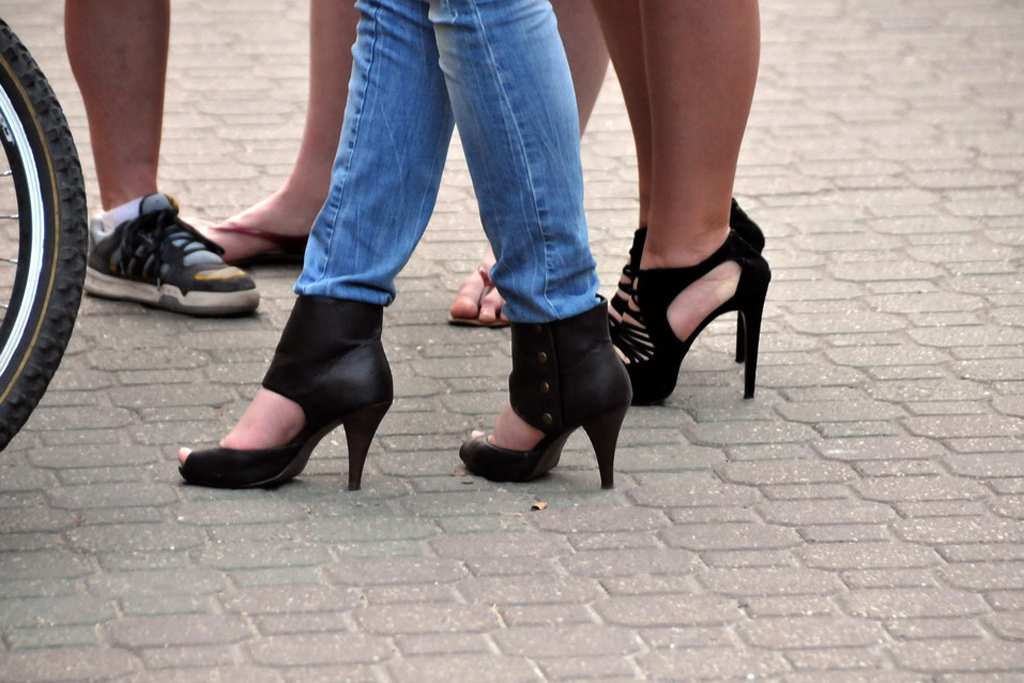
(Source: Facemepls [CC BY 2.0], via Wikimedia Commons.)
That doesn’t mean high heels are bad. Many women like the look of high heels and don’t mind if the shoes are uncomfortable. But there’s a difference between choosing to wear something and being forced to. One Japanese website reported that about 60% of Japanese women are forced to wear high heels at work.
Ms. Ishikawa created a petition – a request which other people sign to show their support. She asked Japan to make requiring high heels at work against the law. The petition explained the problems caused by high heels. It also pointed out that it was unfair that women were often required to wear high heels, but men were not. Her petition quickly got thousands of supporters.
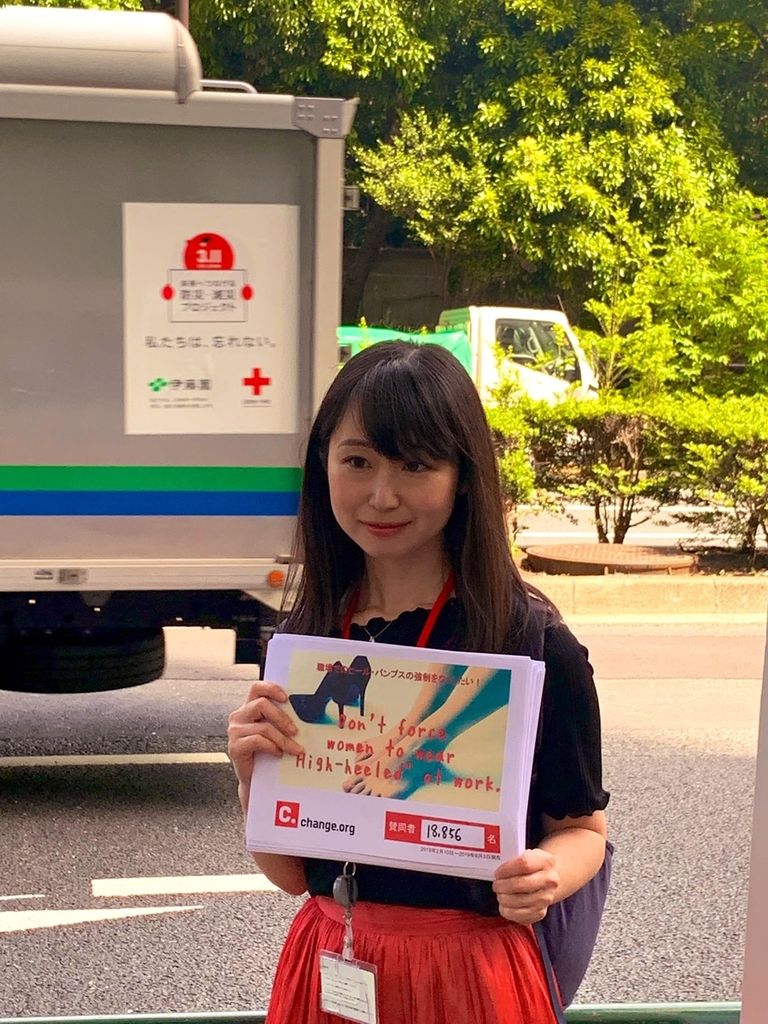
(Source: Yumi Ishikawa.)
On June 3, Ms. Ishikawa gave a copy of her petition to Japan’s government. At the time, the petition had close to 20,000 signatures. The government said that it had no plans to change the rules.
Japan already has a law which says that men and women must be treated equally at work. But the law doesn’t cover rules about what people wear.
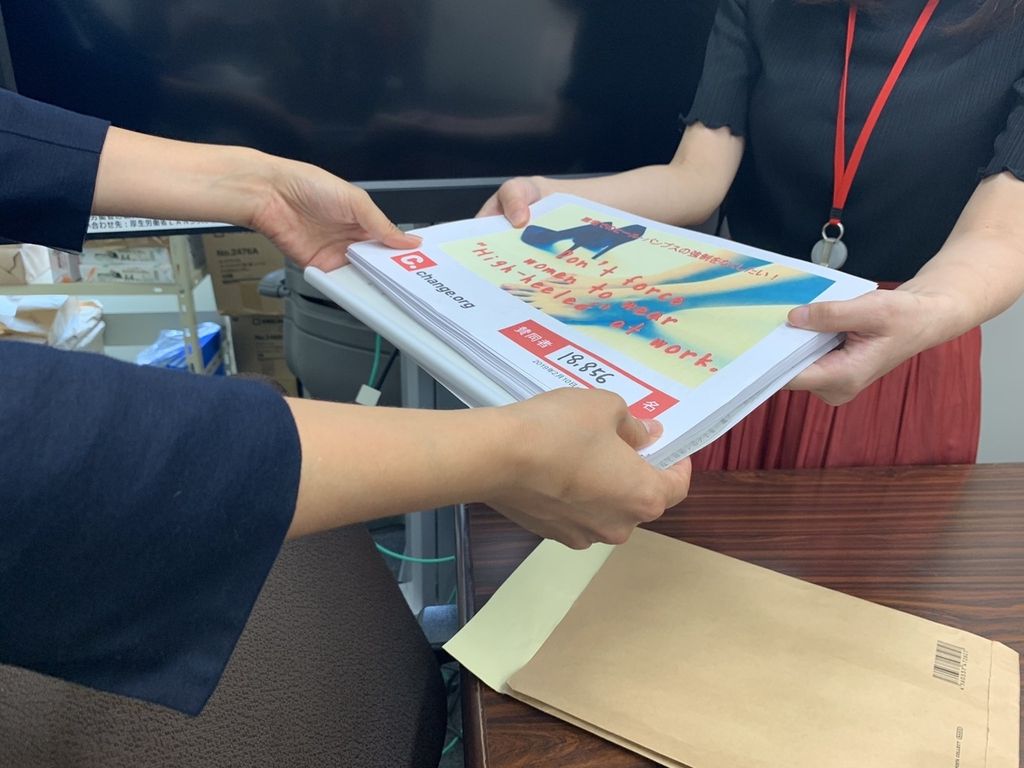
(Source: Yumi Ishikawa.)
Takumi Nemoto, who is in charge of work laws for the government, says most people see wearing high heels as “necessary and reasonable”. Others in the government disagree with Mr. Nemoto.
Two years ago, a similar petition in England got 150,000 signatures. Parliament discussed it, but did not make a new law. In 2017, the Philippines passed a law like the one Ms. Ishikawa’s petition requests. So did British Colombia, Canada.
Ms. Ishikawa’s petition now has nearly 30,000 signatures, and the number is still going up.
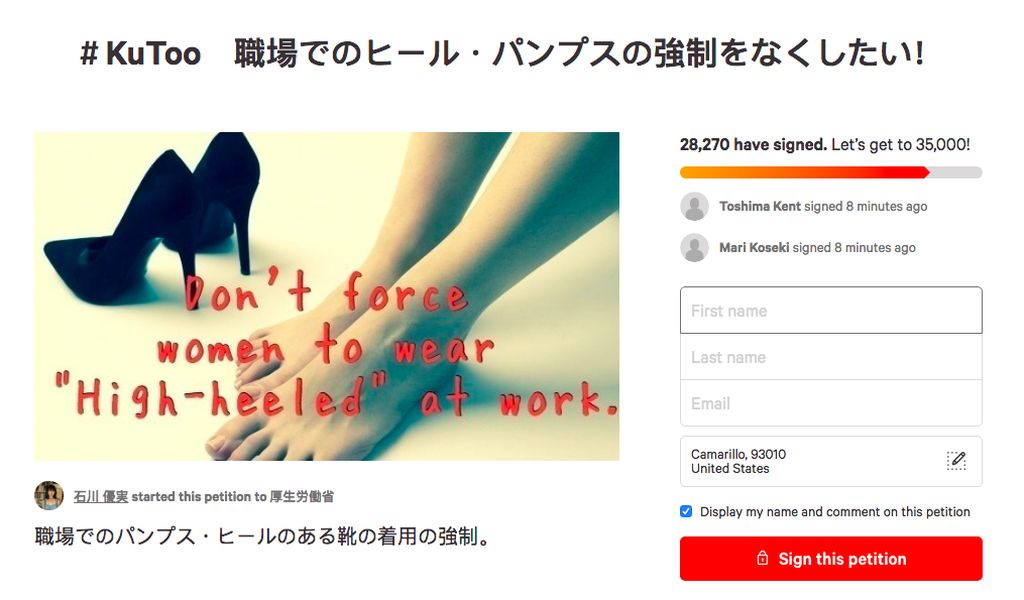
(Source: Screenshot, Change.org.)
😕
This map has not been loaded because of your cookie choices. To view the content, you can accept 'Non-necessary' cookies.
